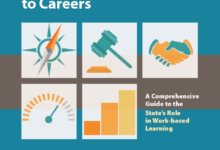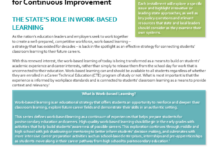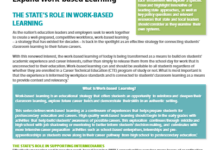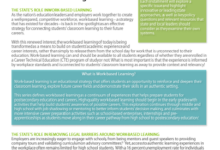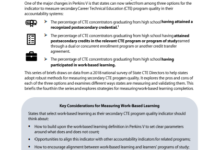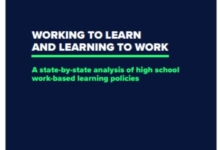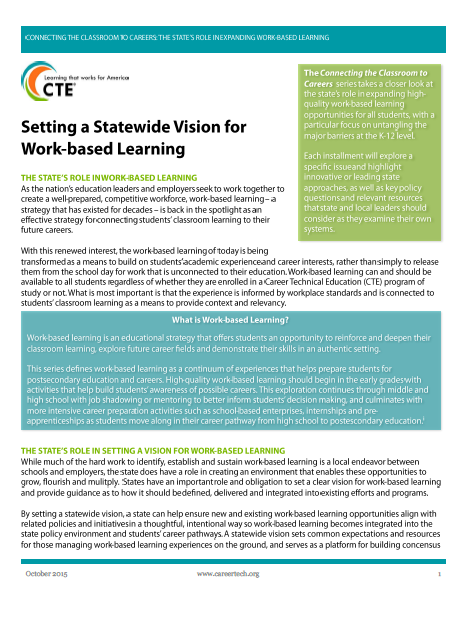Work-based learning is an educational strategy that offers students an opportunity to reinforce and deepen their classroom learning, explore future career fields and demonstrate their skills in an authentic setting. By setting a clear vision around work-based learning, states can better integrate opportunities into existing policies and career pathways. This document, the first in Advance CTE’s Connecting the Classroom to Careers series, provides guiding questions that states should consider as they assess, develop, and implement their vision for work-based learning.
It also features a short case study of Tennessee, where the Department of Education, motivated by Governor Haslam’s “Drive to 55” campaign, sought to overhaul the state’s CTE course standards and provide more meaningful work-based learning opportunities for its students. After conducting a statewide assessment of existing efforts, Tennessee revised its policies and standards, piloted a work-based learning program, and rolled out the program statewide. States can use this resource and the lessons learned from Tennessee to develop and implement a vision for work-based learning.
Other installments in the series include:
- Removing Legal Barriers around Work-based Learning
- Leveraging Intermediaries to Expand Work-based Learning
- Measuring Work-based Learning for Continuous Improvement

